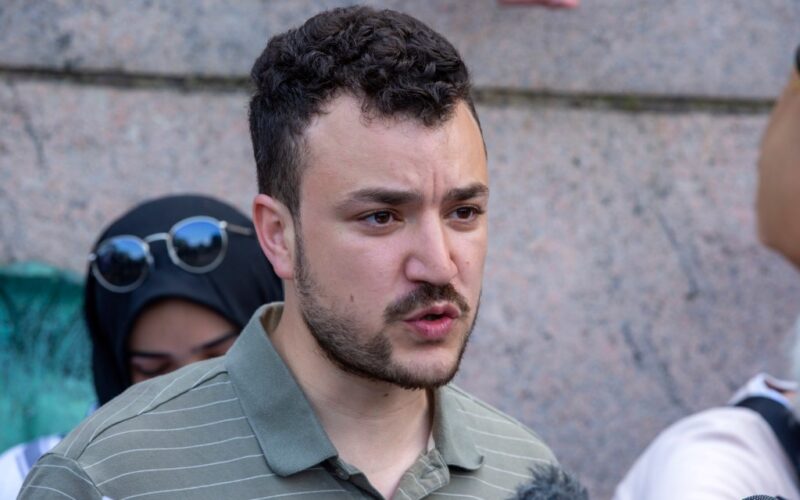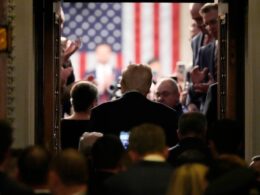The Trump administration cannot for now deport or detain Mahmoud Khalil, the Columbia University grad student and pro-Palestinian activist, a federal judge in New Jersey ruled Wednesday.
N.J. Federal Judge Michael Farbiarz said in granting a preliminary injunction that Khalil should be released and could not be kicked out of the country based on Secretary of State Marco Rubio’s determination that his political beliefs advocating for Palestinian rights could compromise U.S. foreign policy.
The judge found Khalil, who’s been in custody for 13 weeks, would face irreparable harm were he not released.
“[The] Court finds as a matter of fact that [Khalil’s] career and reputation are being damaged and his speech is being chilled — and this adds up to irreparable harm,” the judge wrote.
The government has also cited a second reason for seeking to deport Khalil — alleging he failed to accurately fill out forms when he applied for permanent residency.
“Maybe [Khalil] would be detained, in any event, on that second basis. And if so, it might be argued, there would not be any incremental chilling effect from detaining [Khalil] for an additional reason, the Secretary of State’s determination,” Farbiarz wrote Wednesday.
“But that argument does not work. The reason: the evidence is that lawful permanent residents are virtually never detained pending removal for the sort of alleged omissions in a lawful-permanent-resident application that the [Khalil] is charged with here. And that strongly suggests that it is the Secretary of State’s determination that drives [Khalil’s] ongoing detention — not the other charge against him.”
The judge, who previously indicated he found Rubio’s determination unconstitutional, gave the government until Friday to appeal his decision.
Khalil was arrested on March 8 in his Columbia-owned apartment on March 8 after the federal government moved to revoke his green card based on a rarely-used section of the 1952 Immigration and Nationality Act that empowers the secretary of state to order someone deported if their presence is considered adverse to U.S. foreign policy interests.
This developing story will be updated.
Originally Published:








